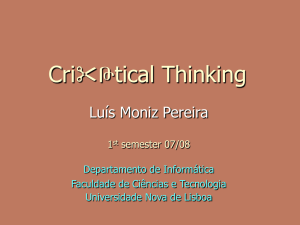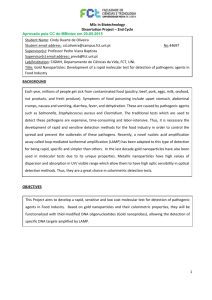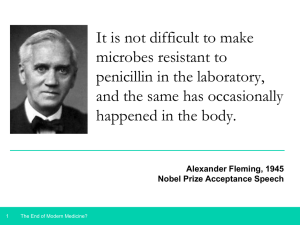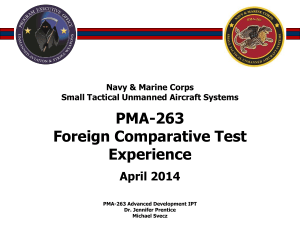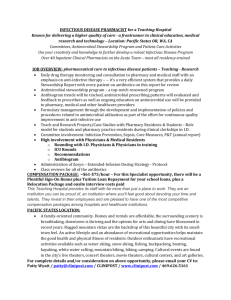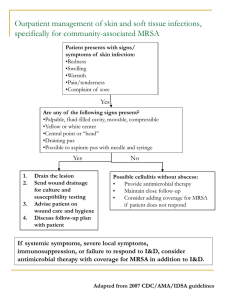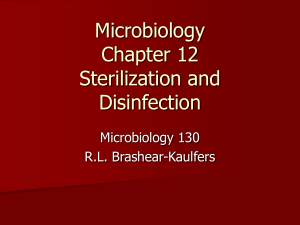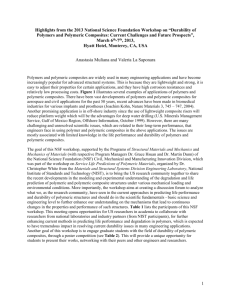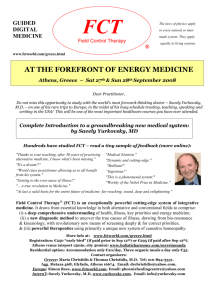MSc in Biotechnology Dissertation Project – 2nd Cycle Aprovado
advertisement
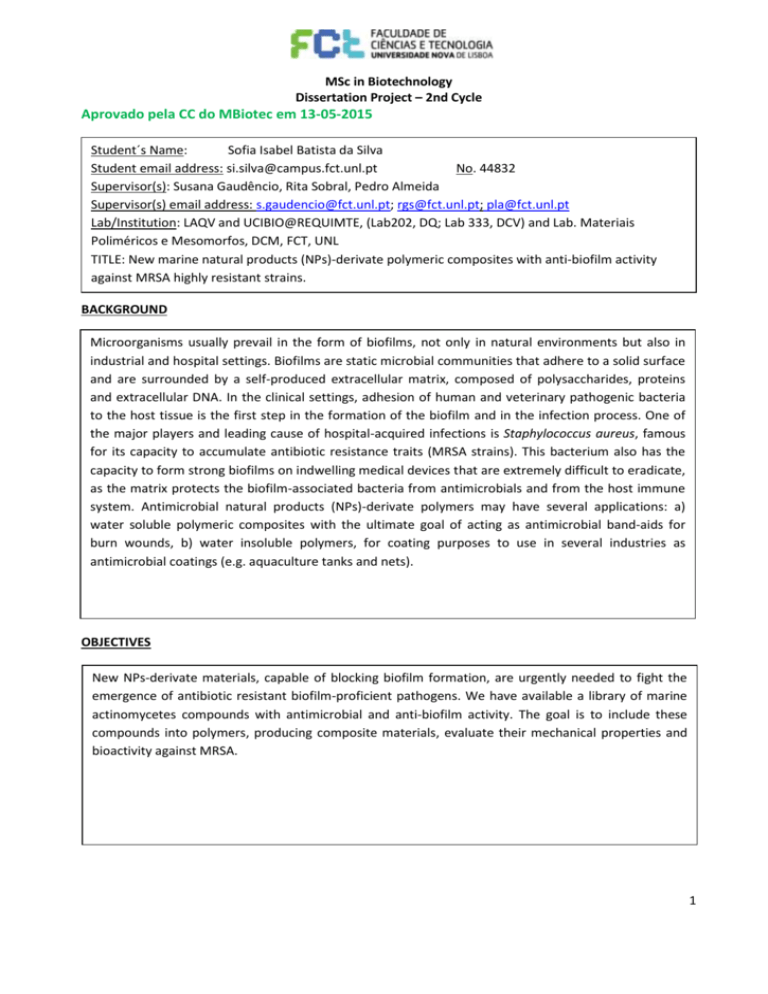
MSc in Biotechnology Dissertation Project – 2nd Cycle Aprovado pela CC do MBiotec em 13-05-2015 Student´s Name: Sofia Isabel Batista da Silva Student email address: si.silva@campus.fct.unl.pt No. 44832 Supervisor(s): Susana Gaudêncio, Rita Sobral, Pedro Almeida Supervisor(s) email address: s.gaudencio@fct.unl.pt; rgs@fct.unl.pt; pla@fct.unl.pt Lab/Institution: LAQV and UCIBIO@REQUIMTE, (Lab202, DQ; Lab 333, DCV) and Lab. Materiais Poliméricos e Mesomorfos, DCM, FCT, UNL TITLE: New marine natural products (NPs)-derivate polymeric composites with anti-biofilm activity against MRSA highly resistant strains. BACKGROUND Microorganisms usually prevail in the form of biofilms, not only in natural environments but also in industrial and hospital settings. Biofilms are static microbial communities that adhere to a solid surface and are surrounded by a self-produced extracellular matrix, composed of polysaccharides, proteins and extracellular DNA. In the clinical settings, adhesion of human and veterinary pathogenic bacteria to the host tissue is the first step in the formation of the biofilm and in the infection process. One of the major players and leading cause of hospital-acquired infections is Staphylococcus aureus, famous for its capacity to accumulate antibiotic resistance traits (MRSA strains). This bacterium also has the capacity to form strong biofilms on indwelling medical devices that are extremely difficult to eradicate, as the matrix protects the biofilm-associated bacteria from antimicrobials and from the host immune system. Antimicrobial natural products (NPs)-derivate polymers may have several applications: a) water soluble polymeric composites with the ultimate goal of acting as antimicrobial band-aids for burn wounds, b) water insoluble polymers, for coating purposes to use in several industries as antimicrobial coatings (e.g. aquaculture tanks and nets). OBJECTIVES New NPs-derivate materials, capable of blocking biofilm formation, are urgently needed to fight the emergence of antibiotic resistant biofilm-proficient pathogens. We have available a library of marine actinomycetes compounds with antimicrobial and anti-biofilm activity. The goal is to include these compounds into polymers, producing composite materials, evaluate their mechanical properties and bioactivity against MRSA. 1 MSc in Biotechnology Dissertation Project – 2nd Cycle PROJECT DESCRIPTION The proposed project is within the scope of microbiology and natural products organic chemistry. The work will take place in the Departments of Chemistry, Materials Science and Life Sciences, lab. 202, lab. 333 – (LAQV and UCIBIO@REQUIMTE/FCT-UNL) and Lab. Materiais Poliméricos e Mesomorfos, DCM. The Work Plan of this project will include: 1. Marine bacteria culture and crude extraction. 2. Antimicrobial compounds isolation by flash column chromatography followed by HPLC. 3. Antimicrobial compounds mixture with various percentages of at least two different types of polymers: water soluble and water insoluble. 4. Characterization of mechanical properties of the marine NPs-derivate polymeric composites. 5. The bioactivity effect of the NPs- derivate polymers will be assessed using a panel of antibiotic proficient MRSA strains. 2
